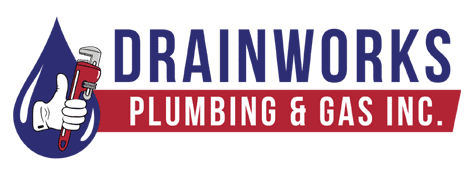How to Unclog a Drain Without Harmful Chemicals
Drain blockages can be a pain, and they frequently seem to occur when least expected. Chemical drain cleaners are typically the first thing that come to mind for most people, but these products may be harsh and even dangerous for both your plumbing and health. Fortunately, there are numerous safer and equally effective alternatives without harmful chemicals to traditional drain unclogging techniques.
We’ll look at some of the most well-liked and efficient natural techniques to unclog a drain in this article.
Warm Water
Pouring hot water down a clogged drain is one of the easiest ways to clear it. Any obstructions can be made loose and flushed away with the aid of hot water. Pour boiling water down the drain with caution. Check to see if the clog is cleared by repeating this procedure a few times.
Plunger
By providing suction, a plunger is a practical instrument that can aid in unclogging a clog. To create a seal, position the plunger over the drain and gently press down. The plunger should then be quickly pumped up and down to create suction. Up till the clog is cleared, repeat this technique a few times.
Vinegar and Baking Soda
A common do-it-yourself approach for unclogging a drain uses vinegar and baking soda. They function by starting a chemical reaction that can break down and remove blockages. Pour some boiling water from a pot down the drain first. After that, flush the drain with half a cup of white vinegar and half a cup of baking soda. For 30 minutes, stop the drain or cover it with a cloth. Pour another pot of hot water down the drain to clear the clog after 30 minutes.
Drain Snake
To clear obstructions, a drain snake—a long, flexible wire—can be placed into the drain. To clear the clog, insert the wire into the drain and twist it around. Pull the snake out of the drain after you feel the blockage has been broken up, then throw the clog away.
Bent Wire Hanger
A bent wire hanger can be a good substitute if you don’t have access to a drain snake. Make a wire hanger straight and bend one end into a little hook. To remove the clog, insert the hook end into the drain and twist it around. Pull the wire hanger out of the drain when the clog has been removed, then throw the clog away.
Dry and Wet Vacuum
A wet and dry vacuum can be a useful device for clearing a clogged drain. Cover the vent to create suction and switch the vacuum to liquid mode. Turn on the vacuum and place the hose’s end over the drain. Suction ought to be forceful enough to clear the obstruction.
Salt with Water that is Boiling
Pouring hot water mixed with salt down the drain is another do-it-yourself technique for clearing a clogged drain. Add half a cup of salt to a kettle of boiling water. Pour the mixture into the drain with caution, then wait 15 to 20 minutes. Use hot water to flush the drain after 15 to 20 minutes.
Enzyme Cleaners
Enzyme cleansers can be a good choice if you’d rather utilize a commercial product. A clogged drain can be unclogged by using enzyme cleaners, which are manufactured from natural components and work by destroying organic debris. For optimum results, adhere to the directions on the package.
There are safer alternatives to strong chemicals that might harm your plumbing and health when used to unclog a drain. Other approaches abound and are both significantly safer and more efficient. The next time your drain is clogged, give one or more of these solutions a try to prevent any potential hazards or harm to the environment that chemical drain cleaners may create.
A Variety of Solutions, Nothing Works, Try a Plumber
Although these techniques work for many different kinds of clogs, it’s important to keep in mind that in some cases it’s advisable to consult a licensed plumber. It’s better to leave the work to the professionals, for instance, if you have a clog that is deep within your plumbing system or if you fear that the clog is brought on by a more serious problem, like a collapsed pipe. In these circumstances, attempting to unclog a drain could do more harm than good.
Furthermore, it’s crucial to take preventative actions to keep blockages from occurring in the first place. Pouring grease or oil down the drain, flushing non-biodegradable items like baby wipes or feminine hygiene products, and letting hair to build up in the drain are a few common reasons of clogs. Use a trash bin for non-biodegradable things, throw away cooking grease and oil, and cover drains to trap hair and other debris to avoid these problems.
Conclusion for How to Unclog a Drain Without Harmful Chemicals
We at Drainworks Plumbing and Gas know how frustrating it can be to cope with clogged drains. To keep your drains functioning properly, we provide a variety of plumbing services. Our team of skilled technicians can handle all of your plumbing issues, from pipe repair to drain cleaning. To find out more about our offerings and how we can assist you with your plumbing issues, get in touch with us right away.
In conclusion, adopting non-toxic methods to unclog drains is not only better for the environment and your health, but it also works just as well as chemical drain cleaners. You may save money, avert potential health problems, and maintain the efficiency of your plumbing by using these other techniques. Contact Drainworks Plumbing and Gas right away if you have a clogged drain that you are unable to unclog on your own or if you have any questions regarding our plumbing services. We have a team of professionals available to assist you with all of your plumbing needs.



